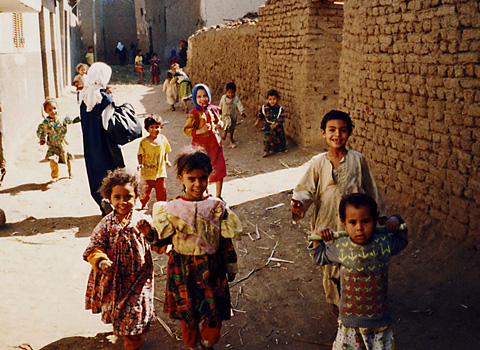Money Matters
Egyptian currency consists of Egyptian Pounds (EGP, locally written as LE). There are 100 piastres in EGP 1. Coins range from 10 piastres to EGP 1, but are not as common as the equivalent notes, which range in size from 25 piastres to EGP 1000.

There is a limit of EGP 5,000 taken into or out of Egypt. It is wise to take travellers cheques for safety and these can be exchanged at any bank. Alternatively you usually get a better deal for cash in USD and many of the large hotels now have exchange machines which take cash or credit cards. Independent travellers should be aware that many Egyptian hotels and travel agencies now require payment in US dollars. Major credit cards can be used for cash advances in banks and exchanges and now for purchases in many large tourist hotels, stores and restaurants. It may be useful to know that Exchange ‘shops’ will often be open all day, whereas banks and travel agents may close for part of the afternoon. It is worth checking out banking hours to avoid disappointment! Scottish and Northern Ireland banknotes are not accepted in Egypt.
Generally most goods and services in Egypt seem to be very good value, but there is a system of bargaining for everything you need, from hotel accommodation to taxis and souvenirs. Some of the larger tourist shops have fixed prices, but in the local markets (bazaars or suqs) bargaining is a way of life – so leave plenty of time for shopping. Asking prices will be very high to begin with and drop rapidly depending on how much interest you show and walking away will often be the way to get prices reduced. It is great fun to bargain and I work on the assumption that I can usually get things for around one third or one quarter of the original asking price. It depends on how much something is worth to me. Remember that Egyptian tradesmen need to make a living too. Shopping often means having a cup of tea or cold drink in almost every stall in the market and half an hour of general conversation (or translating letters from foreign friends) before getting down to the business of prices. You are under no obligation to buy, so don’t feel guilty if you change your mind. If you do make a purchase it is a good idea to keep plenty of small notes as vendors in smaller shops often don’t have change and you may have to wait while they go in search of your change.
Baksheesh or tipping is also a way of life – a kind of unofficial purchase tax on all goods and services and you will need to keep plenty of small notes on you at all times. The level of baksheesh is entirely up to the individual and how much you value the service you have had. As a general rule a tip of EGP 1 to EGP 5 is usually acceptable. This is a small amount to the tourist but is often a large portion of income to an Egyptian, whose monthly wage would not even cover our weekly food bill at home. They usually have large extended families to support on very little money.

Hotel staff, taxi drivers, shopkeepers and guards or guides at the monuments would expect tips, but do not offer baksheesh to professional people, or to policemen (who are not officially allowed to accept money from tourists but will often expect something for their services). More recently many people will expect baksheesh if you take their photograph.
